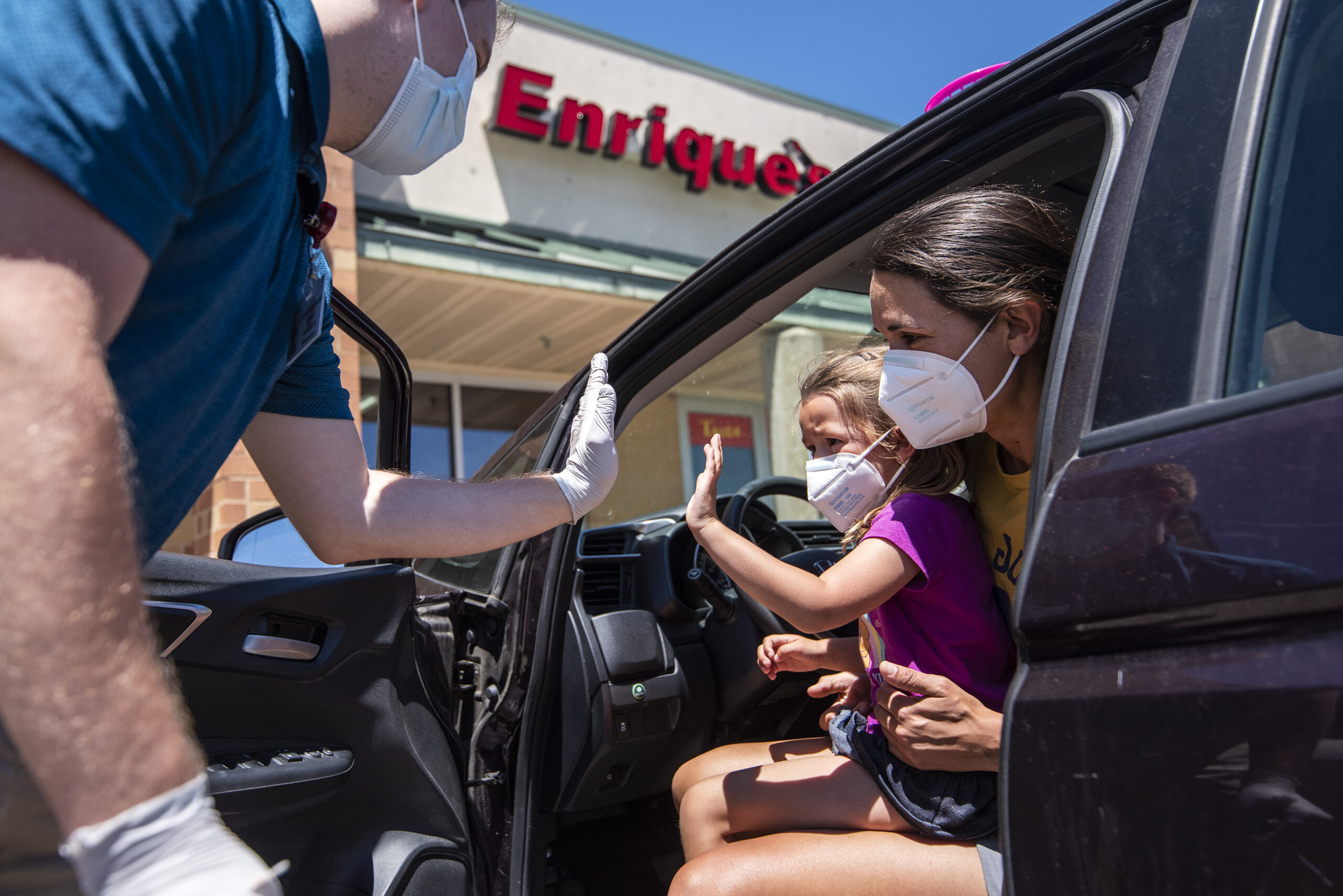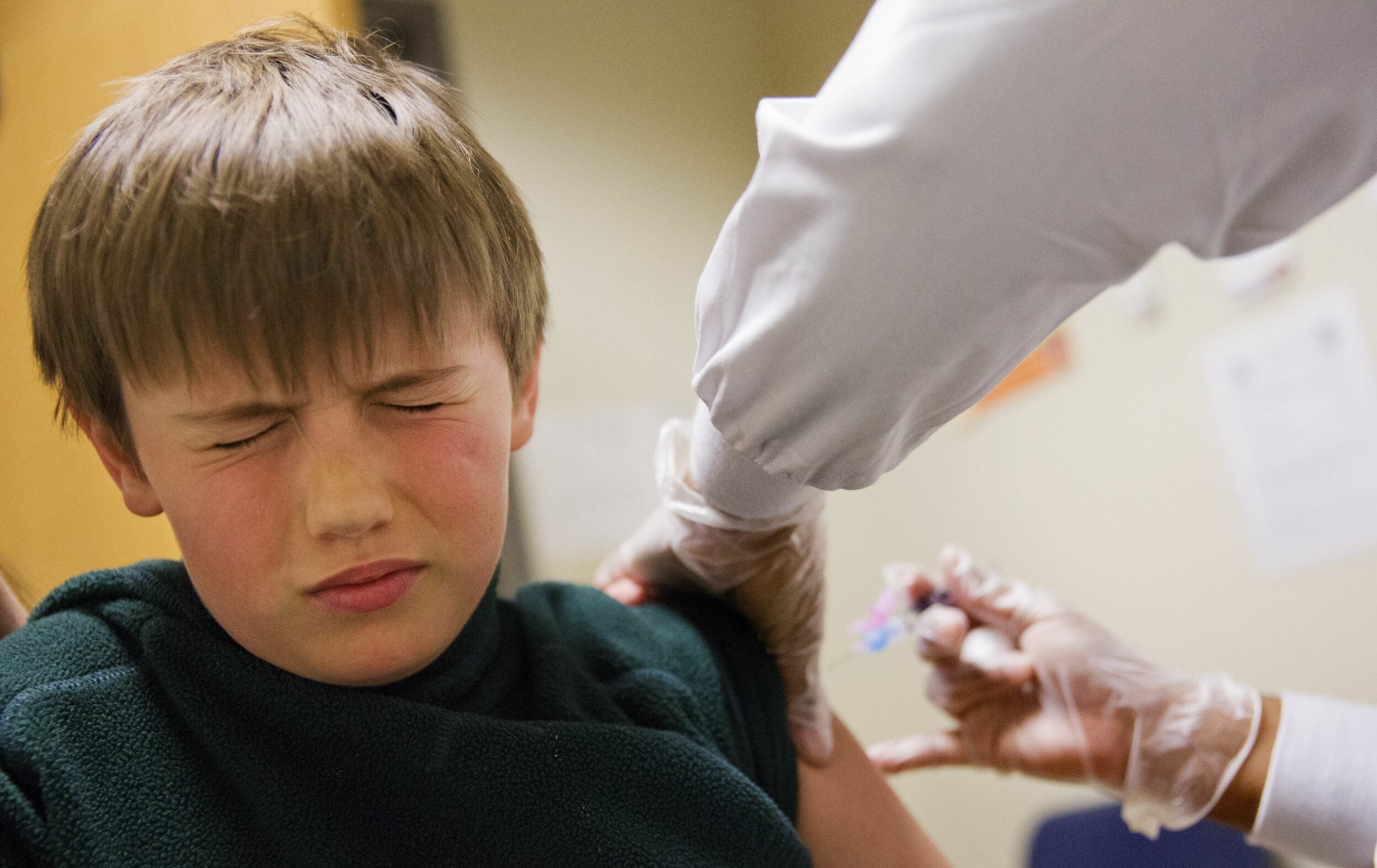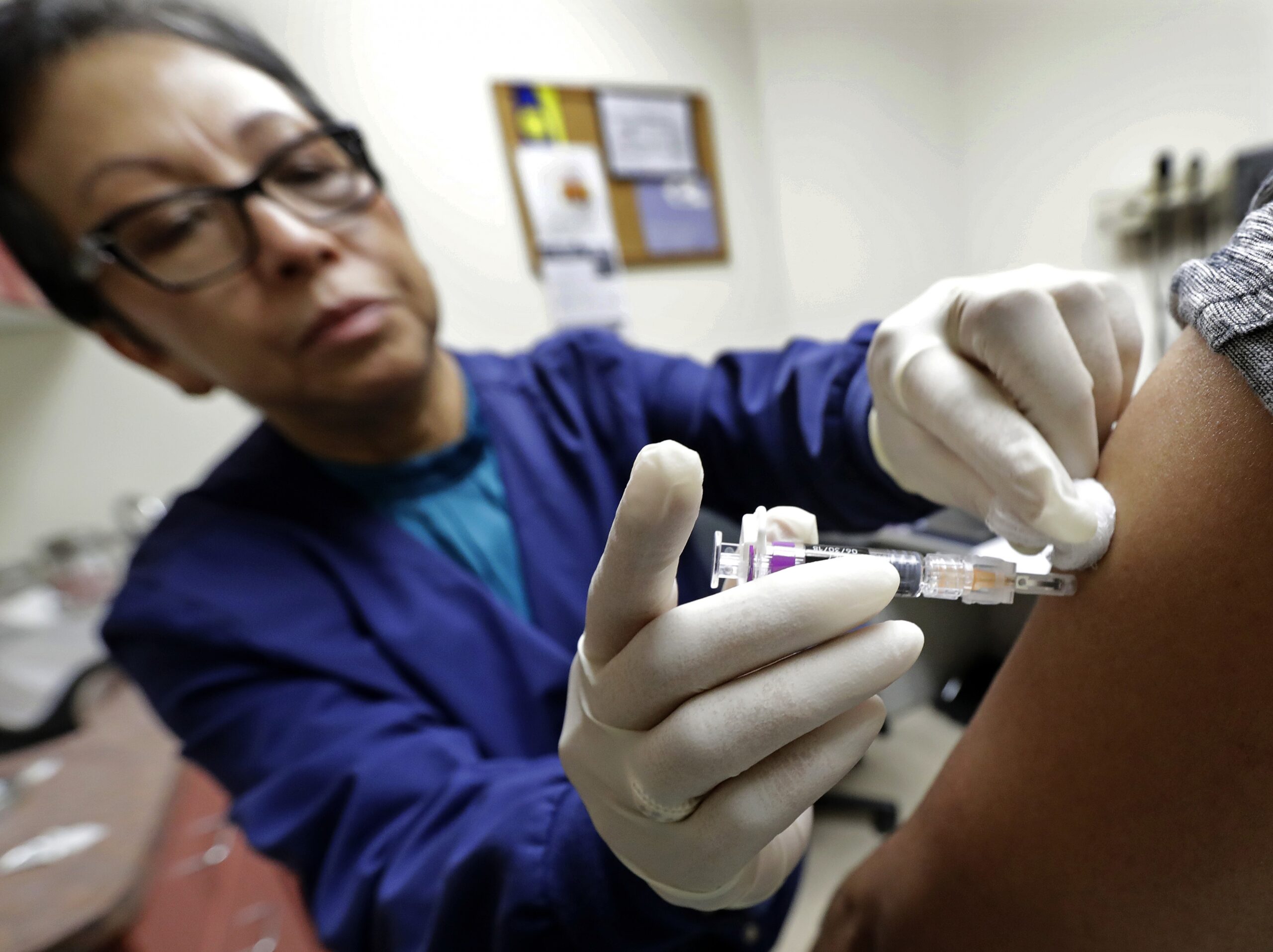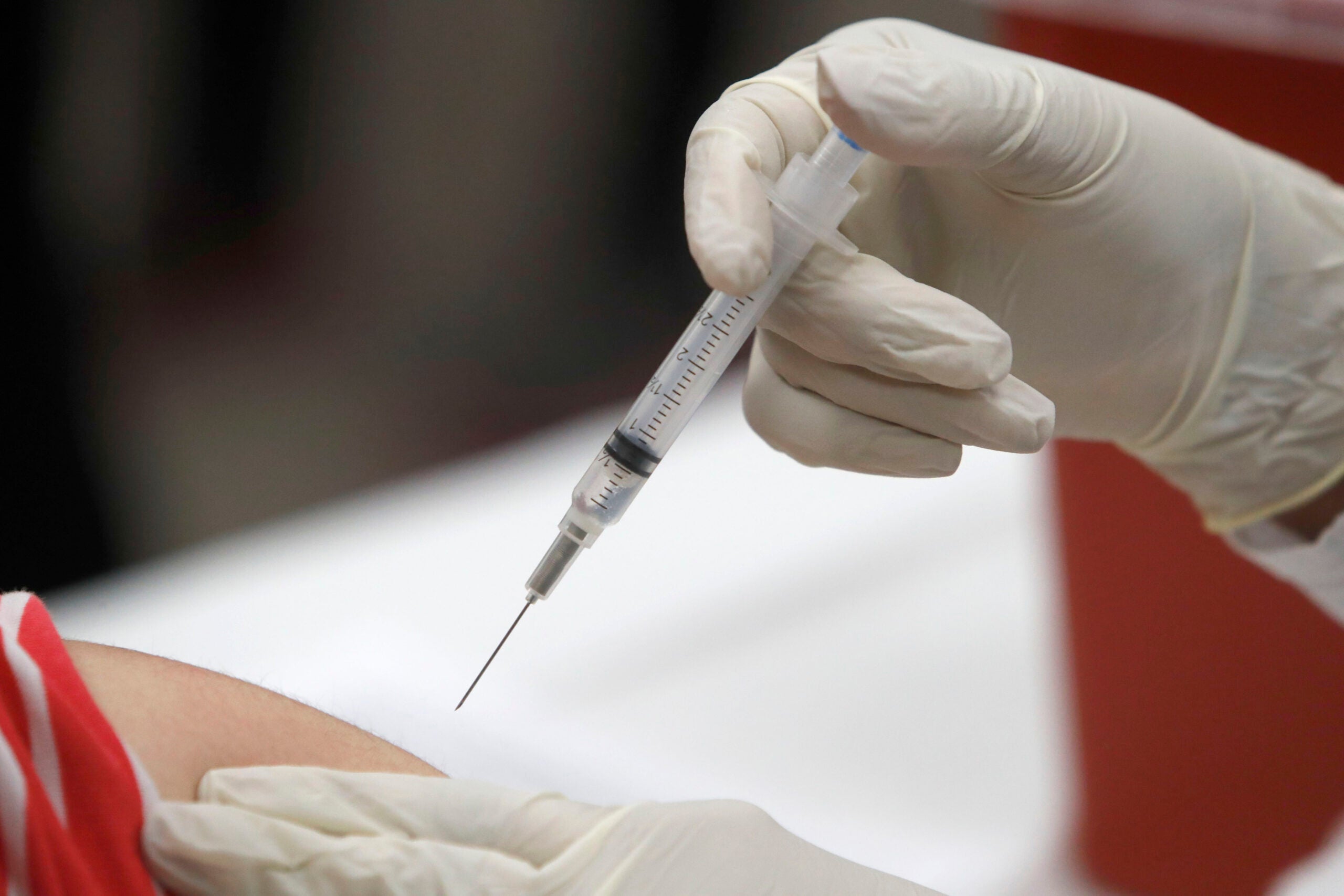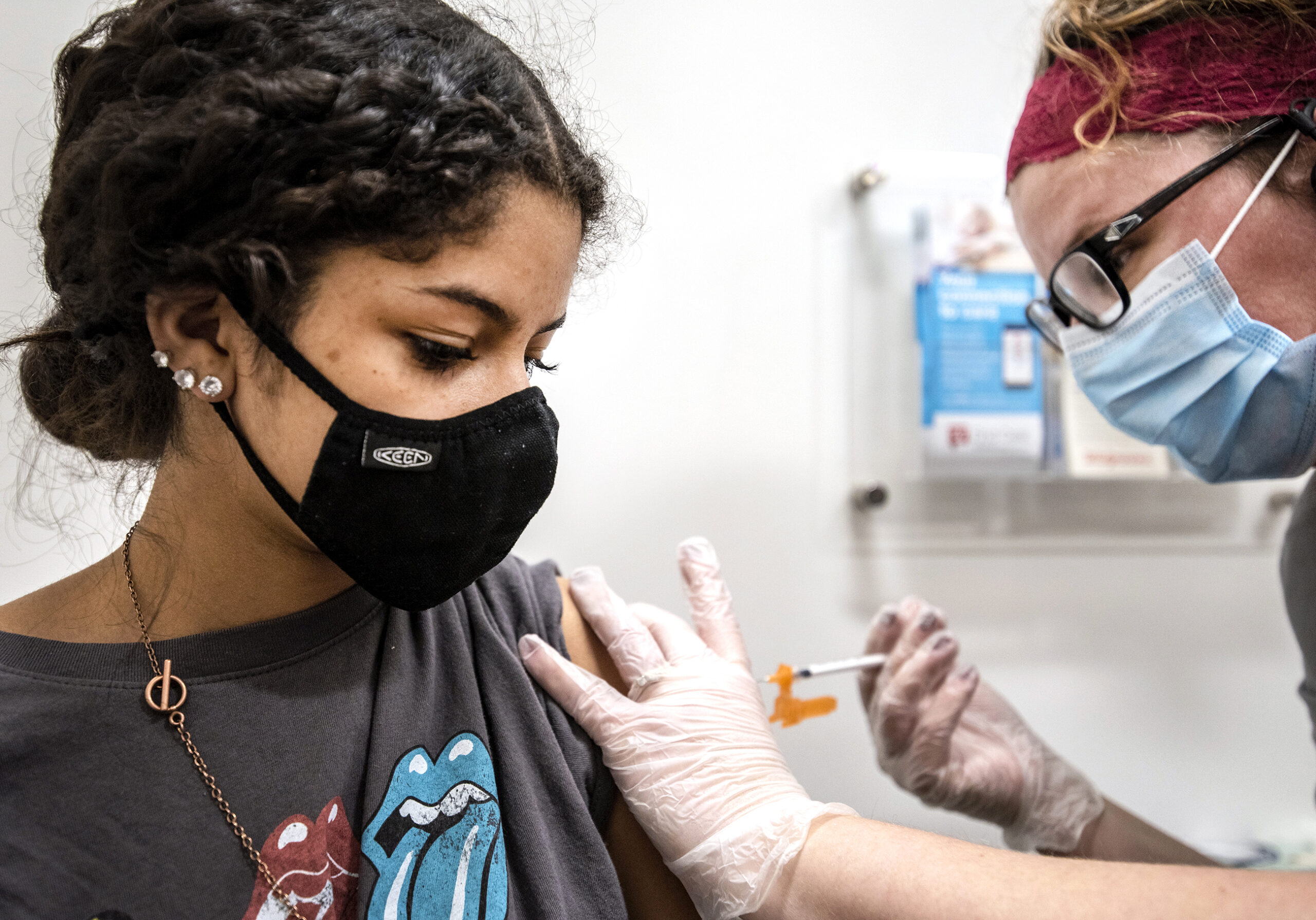Before holiday gatherings, the state Department of Health Services is urging Wisconsinites to get their flu, COVID-19 and respiratory syncytial virus, or RSV, vaccinations.
“Because it takes at least two weeks to get full protection, when people get vaccinated right now for flu, they will have protection going into Thanksgiving holidays,” said Tom Haupt, the department’s respiratory disease epidemiologist. “And also have that protection for the Christmas holidays. And also for New Year’s holidays, as well.”
Respiratory illness activity is low in Wisconsin, as of the agency’s most recent weekly report, with data through Nov. 2.
Stay informed on the latest news
Sign up for WPR’s email newsletter.
Still, Haupt said flu and RSV activity are following a familiar pattern and beginning to rise slightly.
Statewide vaccinations are up, slightly
About 22 percent of Wisconsin residents have gotten their flu shot so far this season, according to DHS data; whereas only 11 percent have received the newest COVID booster.
Haupt said those numbers are up slightly compared to the same time last year.
In recent years, influenza vaccination rates have been on the decline in Wisconsin.
“This is basically the first year that we are actually seeing an increase in vaccination status,” Haupt said. “We’re hoping that that trend will continue.”
Last season, about 35 percent of Wisconsinites got a flu vaccination, according to DHS. Nearly 44 percent received one during the 2020-21 season.
Milder illness season still possible
Models from the U.S. Centers for Disease Control and Prevention forecast a milder respiratory virus season compared to last year, Haupt said.
“So far, the model does hold, but things can change,” he added.
In the past, Wisconsin has seen an uptick in hospitalizations related to flu, RSV and COVID-19, going into December, Haupt said.
The CDC recommends flu and COVID-19 vaccines for anyone 6 months and older. And people 65 and older, or people who are immunocompromised, should receive a second updated booster six months after their first.
The agency also recommends the RSV vaccine for babies under 8 months, pregnant people and people 75 years and older. Those at increased risk of severe RSV should also ask their doctor about the vaccine.
Wisconsinites can schedule vaccination appointments at their doctor, pharmacy or local community clinic. Most insurance plans cover flu and COVID-19 shots. There are also programs that help cover the cost of vaccination for people who are under- or uninsured, such as the state’s Vaccines for Adults program.
Wisconsin Public Radio, © Copyright 2025, Board of Regents of the University of Wisconsin System and Wisconsin Educational Communications Board.
